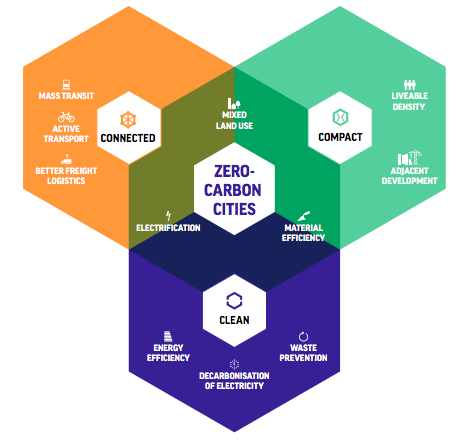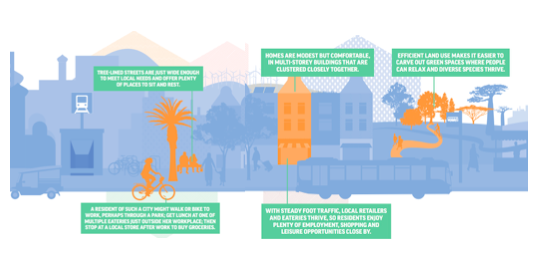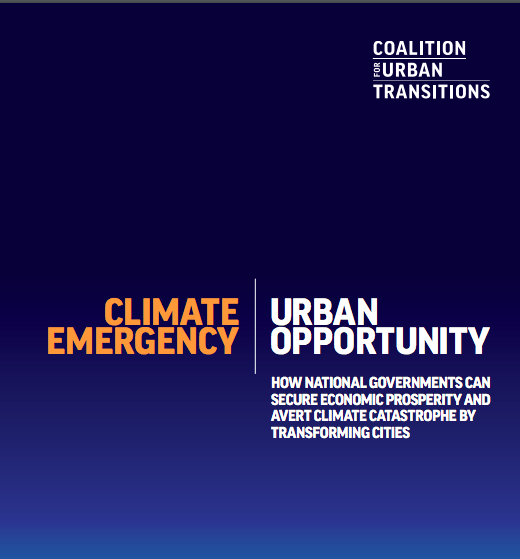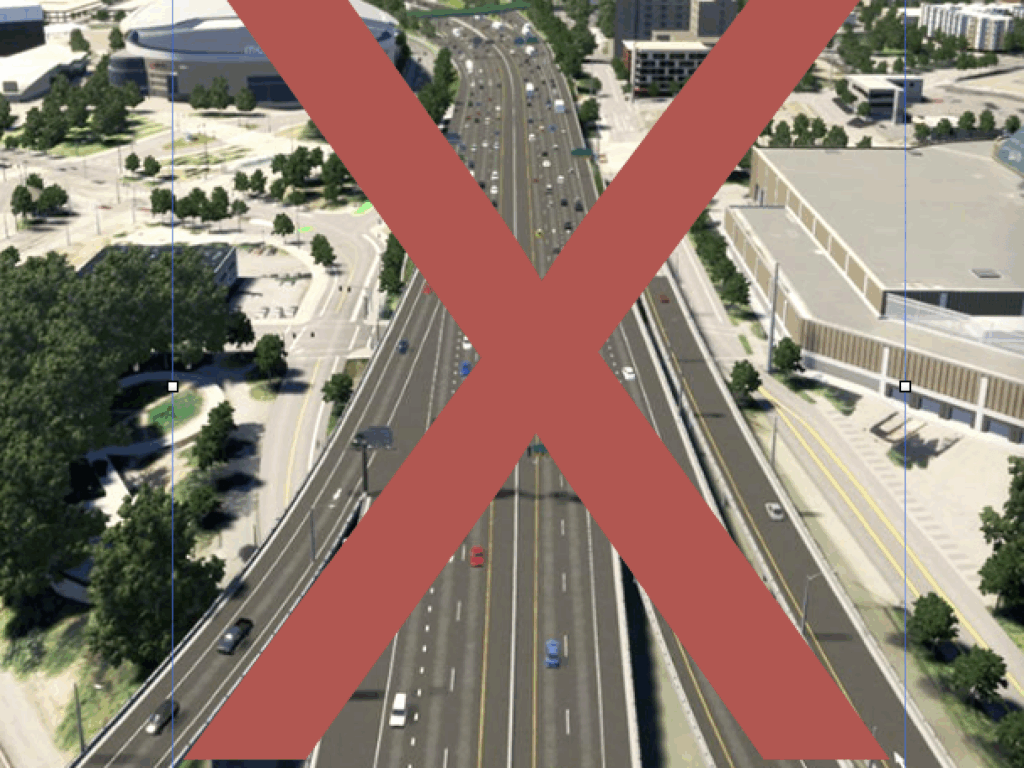A new report shows how cities are central to any strategy to fight climate change
Cities have the “3 C’s: Clean, compact, connected
National government policies need to support cities
Let’s describe a low carbon future in positive, aspirational terms
Will the future be brighter or darker than today? That’s a central question in the climate debates. In an effort to focus attention on the severity of the challenge, much of the discussion is inherently pessimistic. Advocates on one side talk about the dire consequences of inaction; those on the other side emphasize (and in our view exaggerate the difficulties of adjusting to lower carbon living. We’re pleased to see a new report–Climate Emergency, Urban Opportunity–from the Coalition for an Urban Transition, which paints the climate challenge in a fundamentally more optimistic way, with better cities at its center.
For all of the apocalyptic and “eat your peas” rhetoric that surrounds discussions of how to tackle the climate crisis, this report takes the important step of framing the role cities can play in positive, concrete terms. Great green cities are (and will be) wonderful, enjoyable places to live. We’ll be closer to the things we want; we’ll spent less time and money traveling and stuck in traffic, we’ll have more options on how to get around. (Just as with the Sightline Institute’s guide to the rhetoric of housing affordability, how we talk about things matters)
A report released late last year is a guidepost to making this kind of positive case. Entitled: Climate Emergency, Urban Opportunity, the report spells out how cities that are clean, compact and connected will not only have lower carbon emissions, but will be better, more enjoyable places to live, work and play. The core of the report is its “3 Cs” framework, and the narrative explains how each of the elements is mutually reinforcing, and that how together, they form a coherent vision of the role that cities can play making our world more just, sustainable and equitable.
As we’ve long noted at City Observatory, the market is already moving in this direction. People, especially young adults, are increasingly moving to cities — and if that’s producing affordability problems its a sign that we aren’t building great urban spaces fast enough to meet the growing demand. We’ve also noted the rising premium that housing in walkable neighborhoods commands; more evidence that there’s a market demand, and a shortage of places that are compact and connected.
It’s important to paint a picture of how low-carbon urban living can enrich our daily lives, and “Climate Emergency, Urban Opportunity” does just that. Instead of sprawling, low density car-dependent development, we could have cities that offer more.
Reversing this trend by pursuing more compact urban development could deliver better living standards and more vibrant cities. People could enjoy easier access to jobs, services and amenities. Public services could be cheaper, as they could be delivered more efficiently. More time in shared spaces could help to connect people across class and cultural lines. Higher densities could support a greater variety of shops, restaurants and public spaces within neighbourhoods.
The report does a nice job of using graphics and examples to illustrate the livability benefits of low carbon cities. Around the world, cities like Stockholm, Windhoek and Seoul are building the kind of urban neighborhoods that exemplify this inclusive, interesting and low carbon ideal.
Building great cities requires national government support
It’s become fashionable to tout “the New Localism“–the idea that in the face of national government intransigence (or outright denial) of the need to tackle climate change, that Mayors and cities can tackle this big global problem. While some cities are making strides, ultimately, achieving this vision of compact, clean, connected cities will require the full support of national government. National policies on transportation, housing, and energy all set the context for local efforts to promote urban development, and for too long have penalized urbanism and subsidized decentralization and sprawl. For example, the report specifically endorses carbon pricing (something only national governments can accomplish) and the reallocation of national transportation budgets from road building to transit and active transportation. National governments also need to empower cities and local governments to implement road pricing. This report is valuable because it makes a strong case that strengthening cities is essential to achieving important national objectives, starting with climate, but including economic and social progress.
Too often, climate change is framed in apocalyptic terms, with . But its better to view it as an opportunity to fix many of the things we got wrong when we built human habitation around an expensive, unsustainable and in many ways anti-social car-dependent system. Our best days are ahead of us, if we can only have the imagination to build the world we want to live in.
Coalition for an Urban Transition, Climate Emergency, Urban Opportunity: How national governments can secure economic prosperity and avert climate catastrophe by transforming cities, September 19, 2019.




